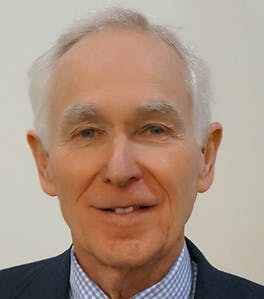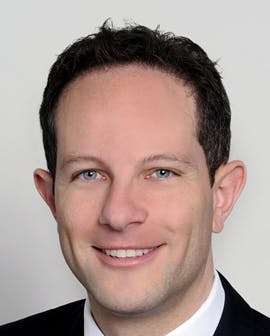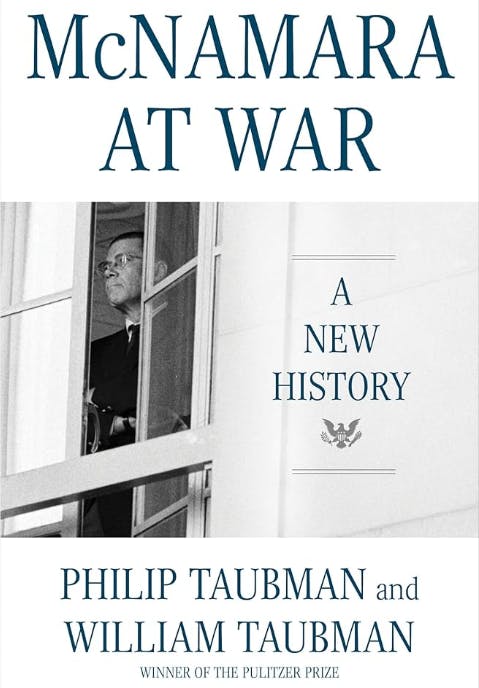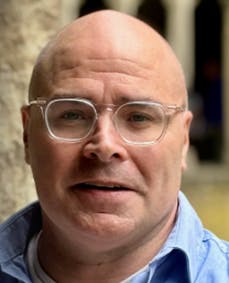Discover Booknotes+
Booknotes+

Booknotes+
Author: C-SPAN
Subscribed: 239Played: 12,408Subscribe
Share
© 2021 National Cable Satellite Corporation. All rights reserved.
Description
Taking the concept from Brian Lamb's long running Booknotes TV program, the podcast offers listeners more books and authors. Booknotes+ features a mix of new interviews with authors and historians, along with some old favorites from the archives. The platform may be different, but the goal is the same – give listeners the opportunity to learn something new.
260 Episodes
Reverse
Jonathan Horn's latest book is titled "The Fate of the Generals: MacArthur, Wainwright, and the Epic Battle for the Philippines." The publisher Scribner explains the premise of Horn's book: "For the doomed stand American forces made in the Philippines at the start of World War II, two generals received the country's highest military award, the Medal of Honor. One was the charismatic Douglas MacArthur whose orders forced him to leave his troops and go to Australia. The other was the gritty Jonathan Mayhew Wainwright who became a hero to the troops whose fate he insisted on sharing."
Learn more about your ad choices. Visit megaphone.fm/adchoices
Anne Marshall is associate professor of history and executive director of the Ulysses S. Grant Presidential Library at Mississippi State University. Her book is "Cassius Marcellus Clay: The Life of an Antislavery Slaveholder and the Paradox of American Reform." Clay lived to be 92, had two wives and 11 children. Kentucky was his home state. As an antislavery reformer, Cassius Marcellus Clay is often remembered as a knife-wielding rabble rouser who both inspired and enraged his contemporaries. Abraham Lincoln made him minister to Russia. And yes, the boxer Muhammad Ali was originally named after him, but decided he wanted his own original name. Ann Marshall will discuss all this with us.
Learn more about your ad choices. Visit megaphone.fm/adchoices
"The Trillion Dollar War Machine" is the name of the book. The co-authors are William Hartung and Ben Freeman. They both do work for the Quincy Institute for Responsible Statecraft, a think tank in Washington, D.C. It's a nonprofit research organization whose stated purpose is to oppose the military-industrial complex described by President Eisenhower in his 1961 farewell address. We will talk with co-author Ben Freeman, the Quincy Institute Director of Democratizing Foreign Policy. The subtitle of the book is: "How Runaway Military Spending Drives America into Foreign Wars and Bankrupts Us at Home."
Learn more about your ad choices. Visit megaphone.fm/adchoices
After 15 books on Revolutionary America, John Ferling still has more to say about the early period in the life of the United States. Ferling is professor emeritus of history at the University of West Georgia. In the preface of his 2025 book, "Shots Heard Round the World," Prof. Ferling opens with this: "Now that America will be commemorating the 250th anniversary of its War of Independence, what pops into your mind as you hear or witness references to that conflict?" Prof. Ferling gives his answer in a 500-page book focusing on America, Britain, and Europe in the Revolutionary War.
Learn more about your ad choices. Visit megaphone.fm/adchoices
Irish American writer Frank McCourt wrote a book in 1996 that was on the New York Times bestseller list for over 100 weeks. Over the next 20 years, "Angela's Ashes" sold close to 10 million copies worldwide. It was translated into 24 languages. McCourt was born in New York City, but moved with his family to Limerick, Ireland, for his childhood years. Frank McCourt died at age 78 in 2009 of melanoma cancer. He was a guest on the Booknotes television program on September 19th, 1996.
Learn more about your ad choices. Visit megaphone.fm/adchoices
This week's encore interview is from September 21, 1997. Twenty-eight years ago. Our guest was Peter J. Gomes, former minister of the Memorial Church at Harvard. His father was from Cape Verde, and his mother was African-American. In 1991, he identified himself as gay but says he remained celibate. Professor Gomes passed away in 2011 at age 69. During his lifetime, he received over 40 honorary degrees. Professor Gomes was a registered Republican for most of his life and offered prayer at the inaugurations of Presidents Reagan and George H.W. Bush. However, in August of 2006, he changed his registration to the Democratic Party. His book is titled "The Good Book: Reading the Bible with Mind and Heart."
Learn more about your ad choices. Visit megaphone.fm/adchoices
British historian Alexandra Churchill is no relation to the former prime minister. However, her new book is the history of the world at war in 1914, titled "Ring of Fire." Alex Churchill is quick to tell you she is not an academic but has a research master's degree in the Battle of the Somme. She's a self-starter who writes three times a week for Substack, co-hosts a podcast titled "History Hack," appears in many documentaries, and is a participant in a history touring company in Great Britain. Her book is the story of ordinary people, she says, not those stalking the corridors of power.
Learn more about your ad choices. Visit megaphone.fm/adchoices
Most of the names are familiar to those who follow politics and government. Hunter Biden, Rudolph Giuliani, Tony Podesta, Paul Manafort, and many others. Kenneth Vogel has written a book about these figures. It's called "Devils' Advocates: The Hidden Story of Rudy Giuliani, Hunter Biden, and the Washington Insiders on the Payroll of Corrupt Foreign Interests." In the publisher Morrow's liner notes on the book, they write: "The foreign influence business comprised of shadowy operators who quietly shaped US foreign policy while producing massive paydays for themselves has existed for decades, often unnoticed by Americans." Ken Vogle is a reporter for the New York Times.
Learn more about your ad choices. Visit megaphone.fm/adchoices
Boston-based writer Doug Most's new book is called "Launching Liberty: The Epic Race to Build the Ships That Took America to War." Most, who spent 15 years at the Boston Globe, writes: "In total, American shipyards produced 2,710 Liberty ships in essentially four years, peaking in the spring and summer of 1943, when almost 800 ships were built in seven months..." A lot of the credit is given to Henry Kaiser, who produced half of all Liberty ships – 1,490. By 1943, average time per ship was down to 42 days, the fastest month recorded. Author Doug Most is currently working at Boston University.
Learn more about your ad choices. Visit megaphone.fm/adchoices
Yale constitutional law professor Akhil Reed Amar's second book in a trilogy is titled "Born Equal: Remaking America's Constitution, 1840-1920." In Professor Amar's introduction, he writes: "Millions of Americans can recite by heart Lincoln's opening line at Gettysburg. But how many of us understand it?" "This sentence," Professor Amar continues, "sits at the very center of this book." Akhil Amar, born in 1958 in Ann Arbor, Michigan, was raised in California. After law school at Yale, he clerked for Supreme Court Justice Stephen Breyer, and became a junior professor back at his alma mater at age 26.
Learn more about your ad choices. Visit megaphone.fm/adchoices
Kenneth Feinberg is a Washington-based attorney who served as a special master of the US government's 9/11 Victims Compensation Fund. Mr. Feinberg worked for 33 months, pro bono, deciding who should be compensated as a result of the deaths and injuries from 9/11. Kenneth Feinberg, who today is 79, was interviewed on C-SPAN's Q&A program about his book, "What is Life Worth: The Unprecedented Effort to Compensate the Victims of 9-11." Here is an encore presentation of that July 1, 2005, interview.
Learn more about your ad choices. Visit megaphone.fm/adchoices
William Arthur Galston has been a senior fellow with the Brookings Institution since 2006 and a columnist for the Wall Street Journal for the past 12 years. In the first paragraph of his latest 161-page book, he tells us what the book is about: "This book advances this proposition that what I call the dark passions - anger, hatred, humiliation, resentment, fear, and the drive for domination - fuels today's attacks on liberal democracy." Galston also says, "persuasive public speech is the main way demagogues mobilize these passions to pursue power." The name of the book is "Anger, Fear, Domination."
Learn more about your ad choices. Visit megaphone.fm/adchoices
Retired George Mason University history professor, Peter Henriques, starts off his author's note writing: "If anyone had told me in the summer of 2023 that I would be writing one more book on George Washington, I would have expressed extreme skepticism." In Episode 6 of this Booknotes+ podcast series in 2021, Professor Henriques told us the same thing. But at 88 years old, he's back with another book on our first president, titled "George Washington: His Quest for Honor and Fame." In the afterward of the book, Peter Henriques puts a special emphasis on George Washington and slavery.
Learn more about your ad choices. Visit megaphone.fm/adchoices
In September 1975, 17 days apart, two women, one in Sacramento and the other in San Francisco, attempted to assassinate President Gerald Ford. The first attempt on September the 5th came from Annette Squeaky Fromm. The Charles Manson follower spent over 30 years in prison, is out on parole, and is 76 years old. The other attempt came on the non-entrance side of St. Francis Hotel in San Francisco on September the 24th, 1975. The shooter, Sara Jane Moore, served 32 years in prison and died almost 50 years to the day on September the 24th, 2025. Author Jerry Spieler wrote the book "Housewife Assassin" in 2009. She talked to and exchanged letters with Sara Jane Moore on several occasions. Here's her up-to-date story about the woman who tried to kill President Ford.
Learn more about your ad choices. Visit megaphone.fm/adchoices
The book is called "Breakneck: China's Quest to Engineer the Future." Author Dan Wang (WONG) was born in China in 1992. His parents moved to Canada when he was seven. In 2014, he graduated from the University of Rochester in New York. Then in 2018, Dan Wang went to live in China until he returned to the US in 2023. He then went to the offices of the Yale Law School and wrote about his comparison of China and the United States. He writes in his introduction: "A strain of materialism, often crass, runs through both countries, sometimes producing variations of successful entrepreneurs, sometimes creating displays of extraordinary tastelessness and overall contributing to a spirit of vigorous competition."
Learn more about your ad choices. Visit megaphone.fm/adchoices
The names are almost all known nationally: Ed Koch, Rudy Giuliani, David Dinkins, Al Sharpton, Larry Kramer, and Donald Trump. These are people who were first in the news in the 1980s. Their early public lives are now featured in Jonathan Mahler's book, "The Gods of New York." The book is divided into four large chapters titled 1986, 1987, 1988, 1989. Mr. Mahler, a feature writer for the New York Times Magazine, closes his book with this last paragraph: "The existential questions that New York faced as it entered 1986 were answered. The great working-class city was gone."
Learn more about your ad choices. Visit megaphone.fm/adchoices
Philip Taubman and his brother William have written what the publisher Norton is calling "McNamara at War: A New History." It's a full life biography of former Secretary of Defense Robert Strange McNamara. "It's a portrait of a man at war with himself," according to the authors. "It's riven with melancholy, guilt, zealous loyalty, and profound inability to admit his flawed thinking about Vietnam before it was too late." William Taubman, seven years older than his brother at 83, is an emeritus political science professor from Amherst College. Brother Phil spent 30 years with the New York Times and is an author of several books.
Learn more about your ad choices. Visit megaphone.fm/adchoices
Daniel Flynn's book is titled, "The Man Who Invented Conservatism: The Unlikely Life of Frank S. Meyer." Mr. Flynn points out in his introduction that "Meyer travels from communist to conservative, peace activist to soldier, Jew to Catholic, rhapsodist of Satan to cheerleader for Reagan, and free love enthusiast to family man." Flynn, who is a senior editor at the American Spectator and a visiting fellow at the Hoover Institution, tells readers how he found the forgotten papers of Frank Meyer. It's in a warehouse in Altoona, Pennsylvania. Meyer lived between 1909 and 1972. He was 62 when he died.
Learn more about your ad choices. Visit megaphone.fm/adchoices
In our last podcast, Ed Luce of the Financial Times told us about his book, "Zbig," for Zbigniew Brzezinski (1928-2017) who he calls America's great power prophet. In this episode, we're going to feature a Booknotes interview from April 2, 1989, with Dr. Brzezinski. He was the first guest for the weekly Sunday evening program that ran until 2005. His book at the time was about his longtime prediction that there would be a failure of communism in the Soviet Union. The name of Brzezinski's book was "The Grand Failure."
Learn more about your ad choices. Visit megaphone.fm/adchoices
"I was initially very skeptical about embarking on a full life biography of anyone, let alone a figure as big as Zbig."Edward Luce is talking about President Carter's former national security advisor, Zbigniew Brzezinski. Mr. Luce is the Financial Times' chief commentator and columnist. Luce is a native of Sussex, England, and has spent close to 20 years in the United States since the mid-90s. He is an Oxford grad. Zbigniew Brzezinski was born in Warsaw, Poland, got his PhD at Harvard, and spent time in Canada during the time his father was posted as police council general in Montreal. Brzezinski was national security advisor from 1977 to 1981.
Learn more about your ad choices. Visit megaphone.fm/adchoices

























This was the worst episode I've listened to. I wanted to hear about his economic thoughts. Instead we dwelled on his sexual picadillos. Sad.